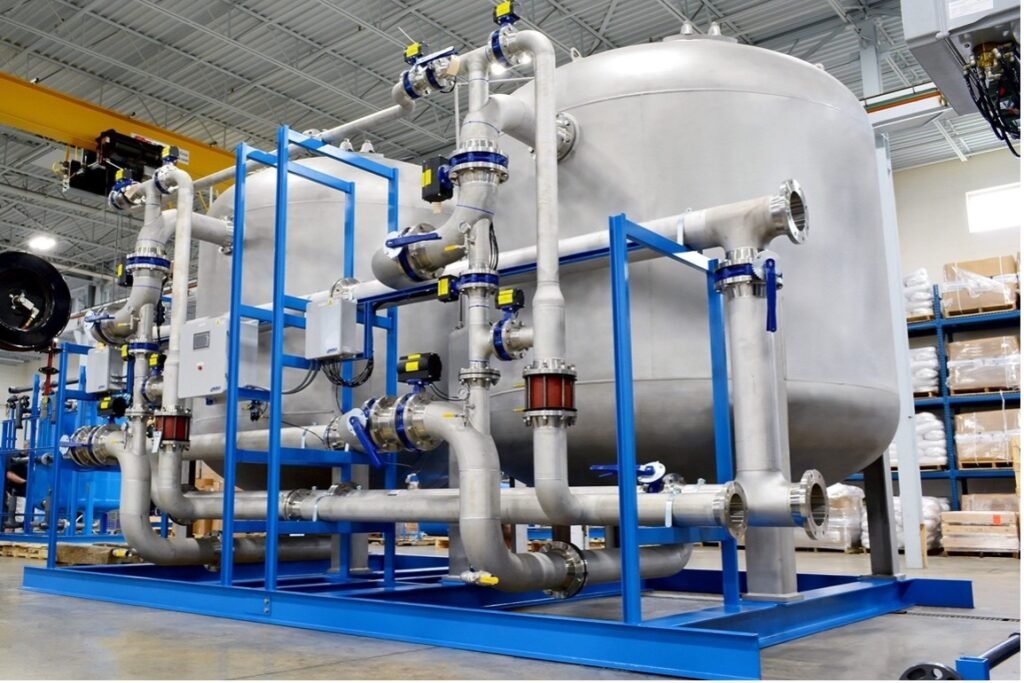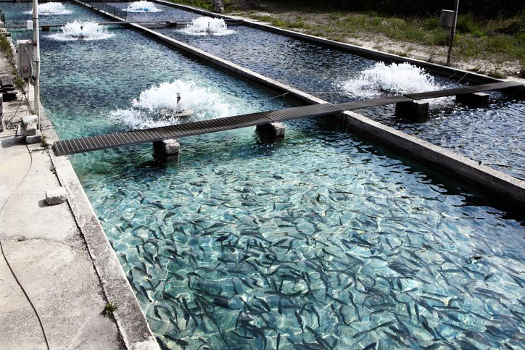
The battle against contaminants and impurities present in water is an ever-present in the water and wastewater treatment industry. There have been many stalwarts, conventional filtration technologies, fighting this everlasting issue.
But the emergence of glass media as a premier filtration solution signifies a paradigm shift towards more effective and sustainable water purification processes.
Crafted from either recycled or virgin glass, glass media offers a multitude of advantages over conventional filtration materials, particularly in addressing the challenges of biofouling, algae formation, and enhancing total suspended solids (TSS) removal efficiency.
Biofouling and Algae Formation: The Achilles’ Heel
One of the most prominent underlying disadvantages of many filtration materials today is the tendency to be extremely susceptible to biofouling. Over time, biological organisms such as bacteria, algae, and fungi can colonize the media’s surface are leading to channeling and biofouling.
This biofilm not only reduces filtration efficiency but also necessitates frequent backwashing and maintenance to mitigate its effects. Algae formation further exacerbates the issue, compromising the quality of treated water and requiring additional chemical treatments for mitigation.
The Introduction of Glass Media in Wastewater treatment
Lately, water treatment technology has seen a paradigm shift with the introduction of glass filtration media. Engineered from recycled glass or even virgin glass, this innovative alternative offers a myriad of benefits.
Advantages of using Glass Media for filtration:
- Biofouling Resistance: Glass filtration media exhibits inherent resistance to biofouling. Its smooth surface inhibits the attachment and growth of microorganisms, ensuring sustained filtration efficiency over time.
- Enhanced Filtration Performance: The uniformity and shape of glass media particles provide superior filtration. This results in higher TSS removal efficiency and improved water quality.
- Reduced Maintenance: With reduced biofouling tendencies, glass media requires less frequent backwashing and maintenance, translating to cost savings and operational efficiency for water treatment facilities.
- Extended Lifespan: The durability of glass filtration media prolongs its lifespan, minimizing the need for frequent media replacement and reducing environmental impact through decreased waste generation. Glass media has been known to have a minimum lifespan of at least 10 years without any replacement being needed.
- Certifications: The intricate and comprehensive manufacturing process that is required to produce high-quality glass media means that it has various certifications as well. High-quality glass media manufacturers nowadays have the following certifications available:
In an era where sustainability and efficiency are paramount, the adoption of glass filtration media represents a significant leap forward in water treatment technology. By addressing the challenges posed by biofouling and algae formation, glass media offers a sustainable solution that ensures consistent and reliable water purification without compromising operational efficiency.
By embracing the benefits of glass filtration media, we pave the way for a brighter and cleaner future, where access to safe and pure water is not just a necessity but a fundamental right for all.
Get in touch with us at info@purewaterent.net, to know more about our glass filtration media offerings and how we can help you achieve unparalleled levels if filtration at your facilities!






About The Author: Pure Water
More posts by Pure Water